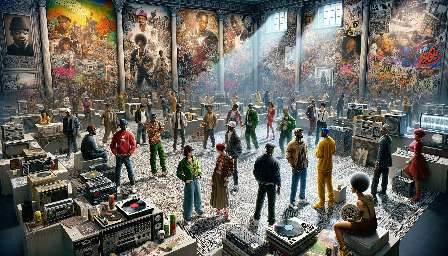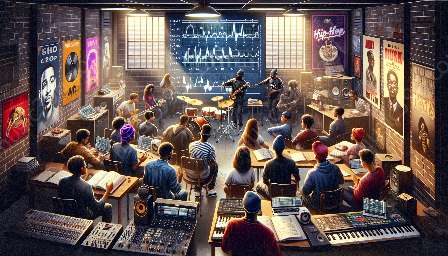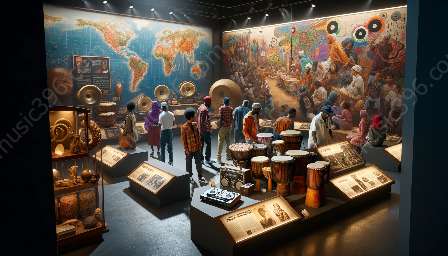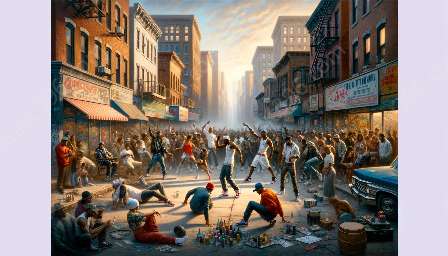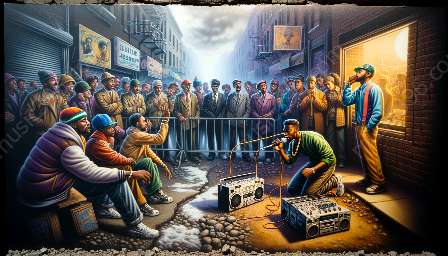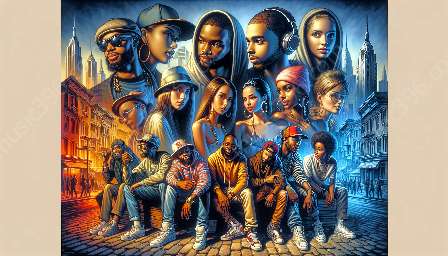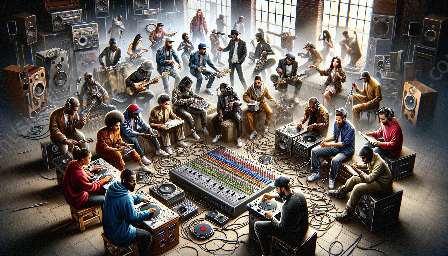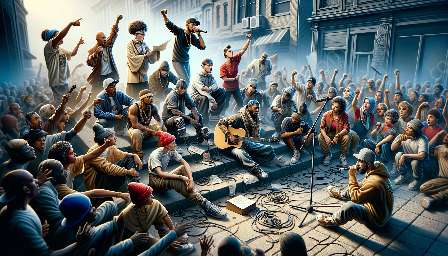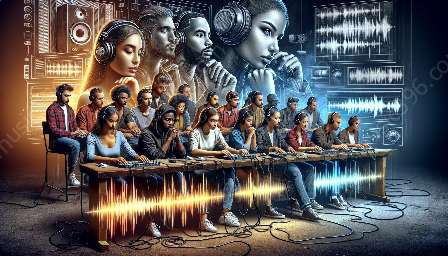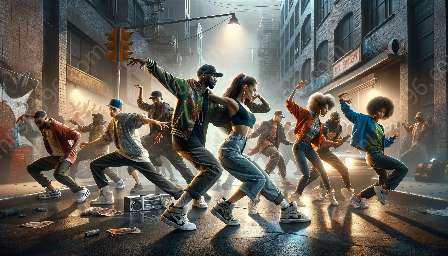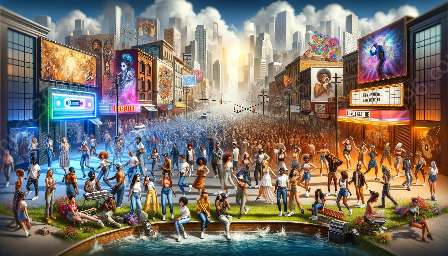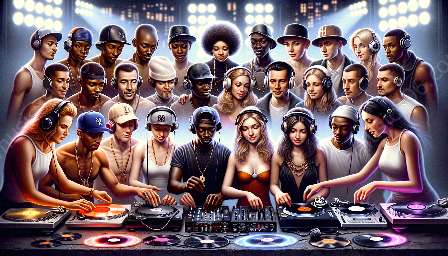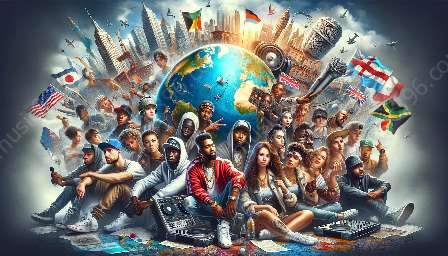Hip-hop, a genre that emerged from the urban streets of New York City in the 1970s, has had a profound influence on the language and slang used in urban settings. This cultural movement, which encompasses music, dance, art, and fashion, has disrupted traditional language and created a new lexicon that continues to shape urban culture around the world.
Evolution of Urban Language and Slang
Hip-hop's impact on urban language and slang can be traced back to its early days in the Bronx, where MCs (Master of Ceremonies) would utilize rhymes, wordplay, and poetic techniques to engage audiences during block parties and other gatherings. This lyrical dexterity laid the foundation for a new form of communication that resonated with urban youth.
As hip-hop gained momentum, its influence extended beyond music to encompass various aspects of urban life, including language and slang. The genre's emphasis on self-expression and storytelling led to the creation of a unique lexicon that reflected the experiences and struggles of inner-city communities.
Impact on Urban Culture
Hip-hop's influence on urban culture and language is undeniable. The genre introduced a new vernacular that resonated with individuals facing similar socioeconomic and racial challenges. Phrases and expressions coined by early hip-hop artists became embedded in the urban lexicon, shaping the way people communicated and connected with one another.
Moreover, hip-hop's emphasis on authenticity and real-life narratives empowered urban youth to embrace their cultural identity and express themselves through language. The genre provided a platform for marginalized voices to be heard and validated, leading to the widespread adoption of hip-hop-inspired language and slang in urban settings.
Intersection with Other Music Genres
While hip-hop has contributed significantly to the evolution of urban language and slang, it has also intersected with other music genres, creating a rich tapestry of linguistic diversity within urban communities. The fusion of hip-hop with R&B, reggae, jazz, and electronic music has led to the cross-pollination of linguistic styles, resulting in a dynamic and ever-changing urban lexicon.
Furthermore, the collaboration between hip-hop artists and musicians from diverse genres has facilitated the exchange of terminology, expressions, and speech patterns, giving rise to a hybrid form of language that reflects the cultural fusion within urban environments.
Continued Influence on Urban Language
As hip-hop continues to thrive as a global cultural phenomenon, its impact on urban language and slang remains pervasive. The genre's ability to evolve and adapt to changing social dynamics ensures that it continues to shape the linguistic landscape of urban settings.
New generations of hip-hop artists and urban youth are constantly redefining and expanding the lexicon, introducing innovative terminology and expressions that reflect the current socio-political climate and cultural influences. This ongoing evolution ensures that hip-hop remains a driving force behind the language and slang used in urban environments.
In Conclusion
Hip-hop's influence on the language and slang used in urban settings has been nothing short of transformative. From its humble beginnings in the Bronx to its global impact, hip-hop has redefined urban communication, providing a platform for self-expression, cultural representation, and community solidarity.
The genre's intersection with other music genres has further enriched the urban linguistic landscape, contributing to a vibrant tapestry of expressions, dialects, and vernacular styles. As hip-hop continues to evolve, its influence on urban language remains an enduring testament to the power of music and culture to shape our modes of communication and identity.




